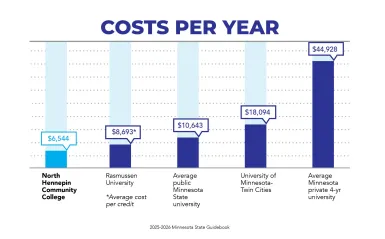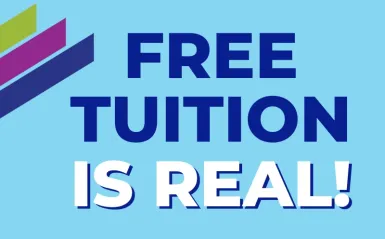Apply for Free
During the month of October, you can apply for free using promo code: CKM25
Transfer Options
The Health Sciences Broad Field AS will transfer to any of the following Minnesota State universities:
Paying For College
NHCC's tuition is among the most affordable in Minnesota.
Financial Aid
- Scholarships are money you don't have to repay
- Grants are money you don't have to repay
Free College Tuition
The North Star Promise scholarship program provides free college tuition to eligible students. Find out if you might be eligible.
Earn a $2,500 Scholarship!
In addition to NHCC scholarships, the college will be awarding $2,500 Workforce Development Scholarships that encourage and reward students pursuing high-demand occupations. Health Sciences Broad Field is a high-demand field and Health Sciences Broad Field students are eligible to apply for a $2,500 Workforce Development Scholarship.
Program Roadmaps
Program roadmaps provide students with a guide to understand the recommended course sequence to complete their degree.
Get Started
If you're ready to get started, apply to NHCC. If you'd like to learn more, you can visit campus or request information.

